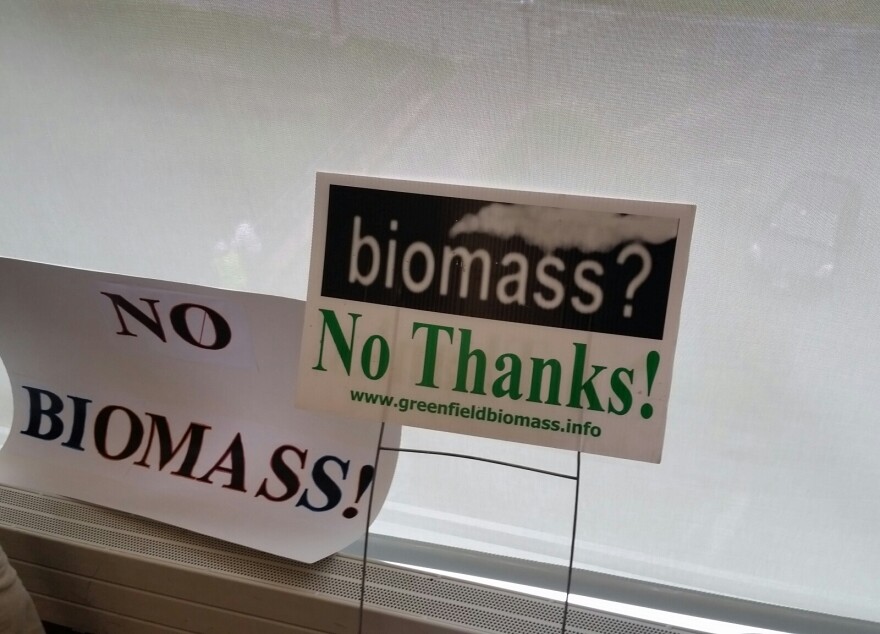Heating systems that use woodchips and pellets for fuel could quality for the same types of clean energy financial incentives as solar and wind in Massachusetts under controversial regulations drafted by the Baker administration.
A final public hearing on the proposed rules was held today in western Massachusetts.
Environmental activists, public health officials, and forest preservationists turned out by the dozens to oppose the designation of woody biomass as a form of renewable energy eligible to be subsidized by state taxpayers.
Forest landowners and representatives of the logging industry made the case for including modern wood heating systems in the state’s clean-energy portfolio.
The public hearing at Holyoke Community College Monday was the final one scheduled by the Massachusetts Department of Energy Resources, which is writing regulations to enact a 2014 law that authorized subsidies to wood boilers and other thermal technologies.
Massachusetts is required by a 2008 law to reduce its greenhouse gas emissions to 25 percent below 1990 levels by 2020, but the proposed regulations for biomass will increase the climate-warming emissions, according to Mary Booth, director of the Pelham-based Partnership for Policy Integrity.
"We need to reduce emissions now," said Booth.
Michael Kellett of Restore: The North Woods said the state is pursuing a misguided policy that promotes intensified logging that will degrade forest ecosystems.
"We're asking the governor to put a moratorium on any kind of incentives for cutting and burning trees and the legislature should take this out of whatever law it is in now," he said.
Proponents say that by offering subsidies for the use of modern wood heating technology the state will encourage people to replace oil burners and older less-efficient wood systems.
Charles Thompson, president of the Massachusetts Forest Alliance, said biomass can help the state reach its greenhouse gas reduction targets.
" It is the ultimate renewable fuel," said Thompson. " It is abundant, local, growing far faster than it is being used. It's a diversified energy supply."
He said the regulations, if adopted, will not promote intensified logging.
"The idea it is going to lead to deforestation is just ludicrous," said Thompson. He added, "It may stimulate the forest economy ever so slightly."
Another concern raised by opponents of the regulations is the soot that comes from burning wood, which can cause respiratory diseases and trigger asthma attacks. Michaelann Bewsee, Executive Director of Arise for Social Justice, said urban communities like Springfield are particularly at risk.
" We should just put our foot down right now and say we should not be moving in the direction of burning anything to meet our energy needs," said Bewsee.
Massachusetts has more pollution from wood combustion than any other New England state, according to a recent report from the U.S. Environmental Protection Agency.





